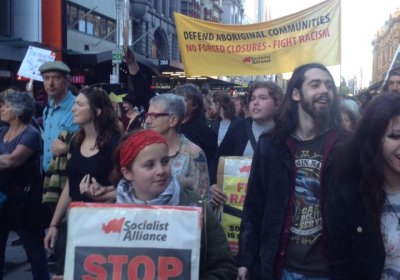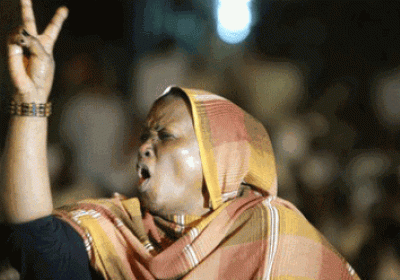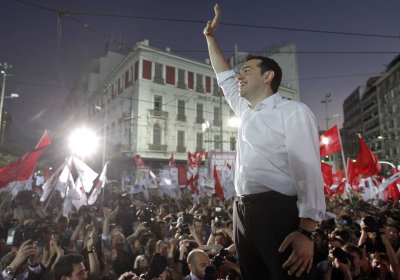A Short History Of Social Democracy: From Socialist Origins To Neoliberal Theocracy By John Rainford Resistance Books $20, 184pp. The rise and then fall of social democracy as a movement for fundamental social change is a modern tragedy of Shakespearean proportions. It is one of the epic stories of the 19th and 20th centuries.
Democracy
About 800 refugees were drowned in the Mediterranean on April 18 when a boat carrying them from Libya, and trying to reach the south of Italy, capsized. Just three days earlier, more than 400 people drowned when another boat on the same route sank. Refugee deaths in the Mediterranean are rising sharply. “According to the UN and the International Organisation for Migration, 1,776 people are dead or missing so far this year, compared with 56 for the same period last year,” the April 24 Guardian reported.
Australia has again declared war on its Indigenous people, reminiscent of the brutality that brought universal condemnation on apartheid South Africa. Aboriginal people are to be driven from homelands where their communities have lived for thousands of years. In Western Australia, where mining companies make billion dollar profits exploiting Aboriginal land, the state government says it can no longer afford to "support" the homelands.
“A high-ranking official close to Greek Prime Minister Alexis Tsipras said the Greek government is not planning to give in to its creditors’ pressures and go against the program they had promised to the Greek people who brought them to power,” GreekReporter.com said on April 16. The comment came amid rising tensions between Greece's SYRIZA-led anti-austerity government and its creditors — the European Central Bank, the European Commission and the International Monetary Fund (IMF).
- Previous page
- Page 309
- Next page











